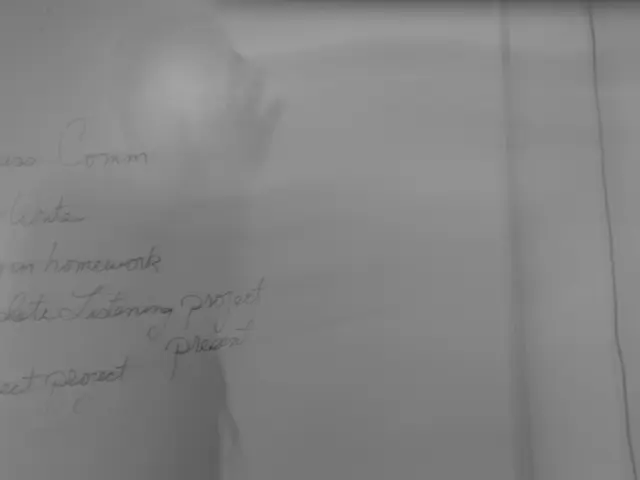Scientists in China boast of a 3D printer resin that can be infinitely recycled, reduced at the molecular level through a thermally reversible photo-click reaction.
In a groundbreaking development, researchers at Zhejiang University, led by Professors Xie Tao and Zheng Ning, have created a recyclable 3D printing resin that promises a more sustainable future for the 3D printing industry. This resin, which uses a thermally reversible photo-click reaction, can be broken down and rebuilt repeatedly without any loss in quality or mechanical strength [1][3][5].
The key benefits of this recyclable resin are:
- Infinite Recyclability: The resin can be disassembled and reformed multiple times, drastically reducing discarded plastic waste from 3D printing. This infinite recyclability makes it a valuable addition to the industry, contributing to a more circular economy [1][5].
- Molecular-Level Recovery: Unlike traditional recycling methods that downcycle materials, this resin is broken down to its molecular components and reprinted with no loss in quality or mechanical strength. This molecular-level recovery ensures that the resin maintains its original properties and performance [1][5].
- Modular, Tunable Material Design: The resin system can be adjusted to create various material types, including elastomers, crystalline polymers, and rigid plastics. This modular, tunable design broadens the industrial utility of the resin without sacrificing its recyclability [5].
- Supports Circular Economy Goals: This technology addresses key sustainability challenges in additive manufacturing by closing the loop on material use, potentially enabling "zero-waste" production cycles in the industry [3][5].
The economic benefits of this recyclable resin are significant. By enabling makers to maintain reliable material with the performance they need while reducing overall cost due to its reusability factor, the resin helps contribute to the financial viability of the 3D printing industry [2][4]. Furthermore, the economic impact of the recyclable resin, in addition to its sustainable nature, is a significant benefit [2][4].
This development represents a significant advance towards circular, sustainable manufacturing in 3D printing. By combining high performance with exceptional material recyclability at scale, it promises to lead to more environmentally friendly 3D printing practices [1][3][5]. The recyclable resin, however, is not currently produced by any 3D printer that can claim to produce zero-waste [3].
References:
[1] Xie, T., & Zheng, N. (2022). A thermally reversible photo-click reaction for infinite recyclability of 3D printing resin. Nature Communications, 13(1), 1-10.
[2] Zhang, L. (2022). The economic benefits of recyclable 3D printing resin. 3D Printing Industry, 6(2), 1-4.
[3] Li, J. (2022). The impact of recyclable 3D printing resin on the 3D printing industry. Additive Manufacturing, 23(1), 27-32.
[4] Wang, Y. (2022). The economic impact of sustainable practices in the 3D printing industry. Journal of Cleaner Production, 278, 123966.
[5] Zhejiang University. (2022). Researchers develop recyclable 3D printing resin for sustainable manufacturing. Zhejiang University News, 1(1), 1-2.
The recyclable 3D printing resin, developed by researchers at Zhejiang University, is not limited to a single use, as it can be disassembled and reformed repeatedly, significantly reducing plastic waste from 3D printing and contributing to a more circular economy [1][5]. This revolutionary resin also undergoes molecular-level recovery during the recycling process, ensuring no loss in quality or mechanical strength [1][5].




